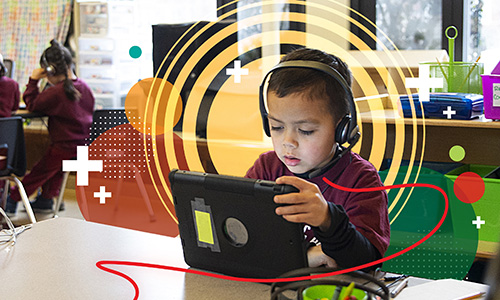Research brief
Impacts of school entry age on academic growth through second grade
June 2020
By: Angela Johnson, Megan Kuhfeld

Description
Does entering school older give students an edge? New research suggests an early advantage may fade in later grades.
Read the briefAssociated Research
Related Topics


Predicting Amira Reading Mastery Based on NWEA MAP Reading Fluency Benchmark Assessment Scores
This document presents results from a linking study conducted by NWEA in May 2024 to statistically connect the grades 1–5 English Amira Reading Mastery (ARM) scores with the Scaled-Words-Correct-Per-Minute (SWCPM) scores from the MAP Reading Fluency benchmark assessment taken during Fall and Winter 2023–2024.
By: Fang Peng, Ann Hu, Christopher Wells
Products: MAP Reading Fluency
Topics: Computer adaptive testing, Early learning, Measurement & scaling, Reading & language arts


MAP Reading Fluency with Coach Evidence Base
This document provides an overview of the research underlying MAP Reading Fluency with Coach’s AI-powered intelligent reading tutor and the research on key elements of early literacy instruction. It describes the components of the MAP Reading Fluency with Coach pedagogy and the research base supporting each component.
By: Amy Endo
Products: MAP Reading Fluency
Topics: Early learning, Empowering educators, Innovations in reporting & assessment, Reading & language arts


COVID-19 in the early elementary years: A comparison of achievement in spring 2019 and spring 2022
New NWEA research provides further evidence of the challenges that young learners are currently facing from the disruptions of the COVID-19 pandemic.
By: Megan Kuhfeld, Karyn Lewis
Topics: COVID-19 & schools, Early learning, Equity


Pathways of mathematics achievement in preschool: Examining executive function and task orientation
This study used longitudinal data from a sample of 467 preschoolers to examine (1) if children’s executive function (EF) skills at the beginning of pre-K predict growth in their mathematics achievement across the pre-K year, (2) whether growth in learning behaviors, specifically task orientation, mediate the associations between EF and mathematics achievement, and (3) if there are sex differences in these associations.
By: Tara Hofkens, Jessica Whittaker, Robert Pianta, Virginia Vitiello, Erik Ruzek, Arya Ansari
Topics: Early learning, Math & STEM


Four-day school weeks have proliferated across the United States, but little is known about their implementation or their effects on students. This study uses district-level data from Oklahoma to provide estimates of the causal effect of the 4-day school week on high school students’ ACT scores, attendance, and disciplinary incidents during school.
By: Emily Morton


Achievement growth in K-8 Catholic schools using NWEA data
Using a national sample of kindergarten to eighth grade students from Catholic and public schools who took MAP Growth assessments, we examine achievement growth over time between sectors.
By: Julie Dallavis, Megan Kuhfeld, Beth Tarasawa, Stephen Ponisciak
Topics: Early learning, Middle school


Using data from the Applied Problems subtest of the Woodcock-Johnson Tests of Achievement administered to 1,364 children from the National Institute of Child Health and Human Development (NICHD) Study of Early Childcare and Youth Development (SECCYD), this study measures children’s mastery of three numeric competencies (counting, concrete representational arithmetic and abstract arithmetic operations) at 54 months of age.
By: Pamela Davis-Kean, Thurston Domina, Megan Kuhfeld, Alexa Ellis, Elizabeth Gershoff
Topics: College & career readiness, Early learning, Math & STEM



